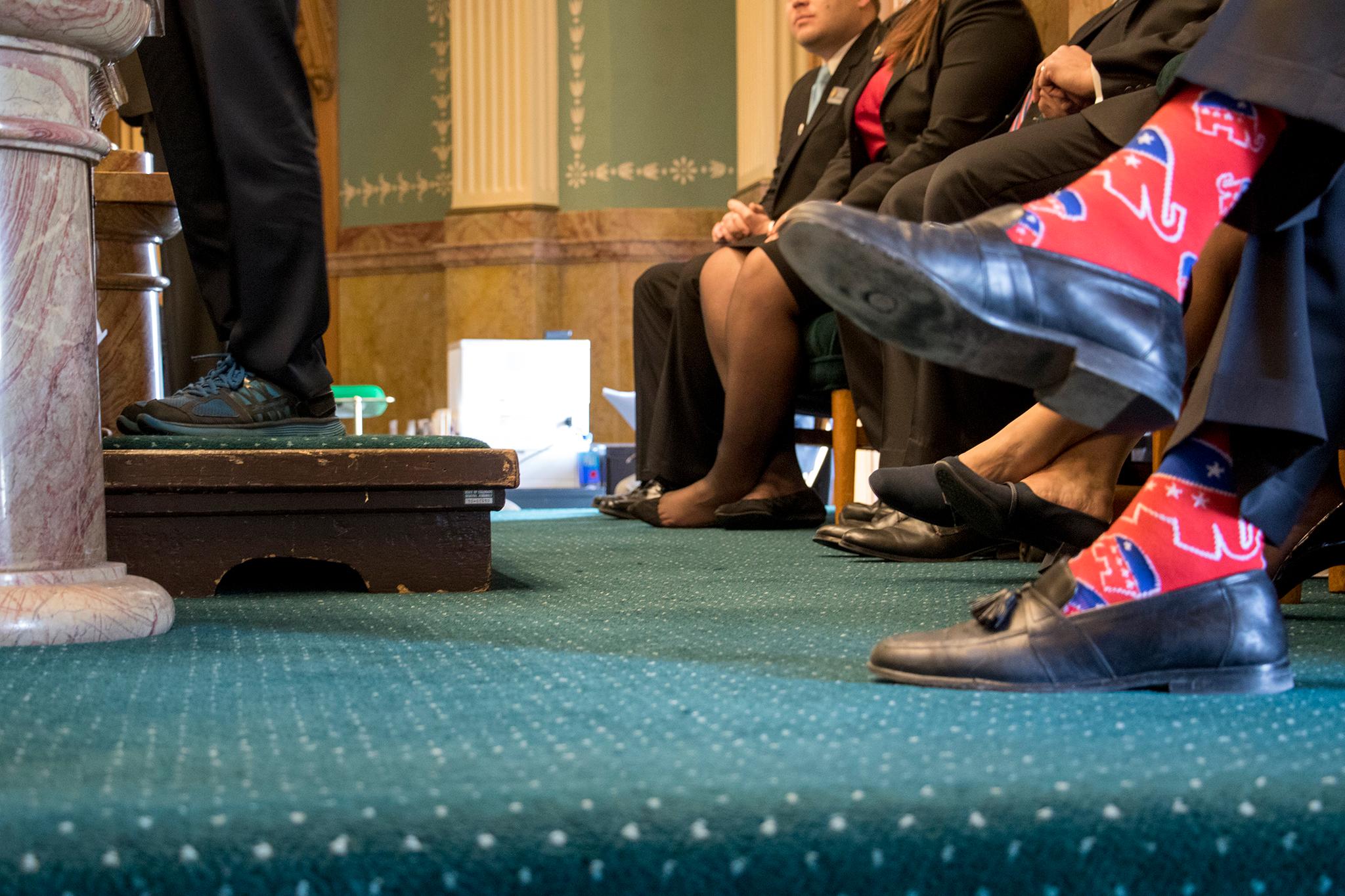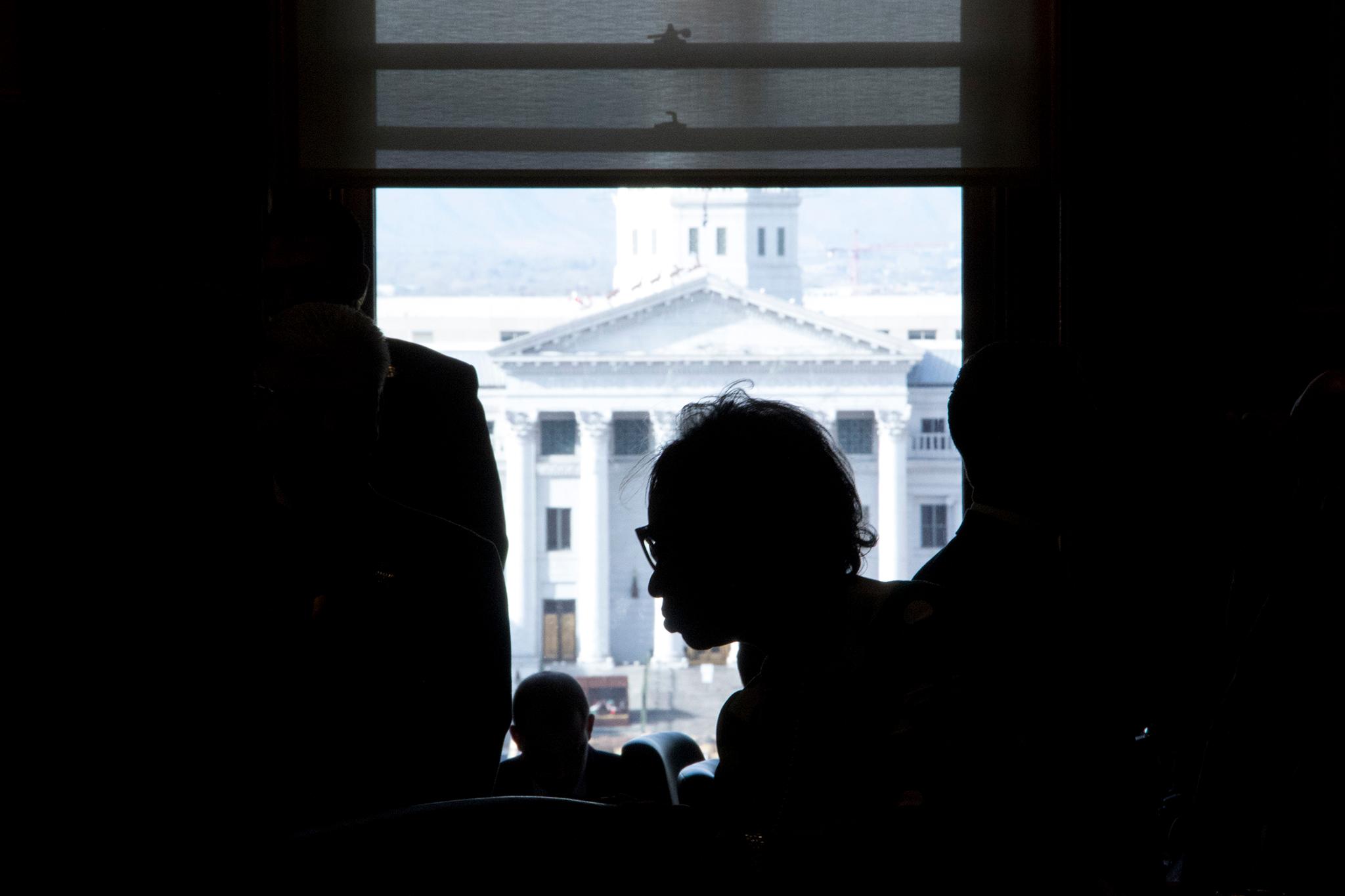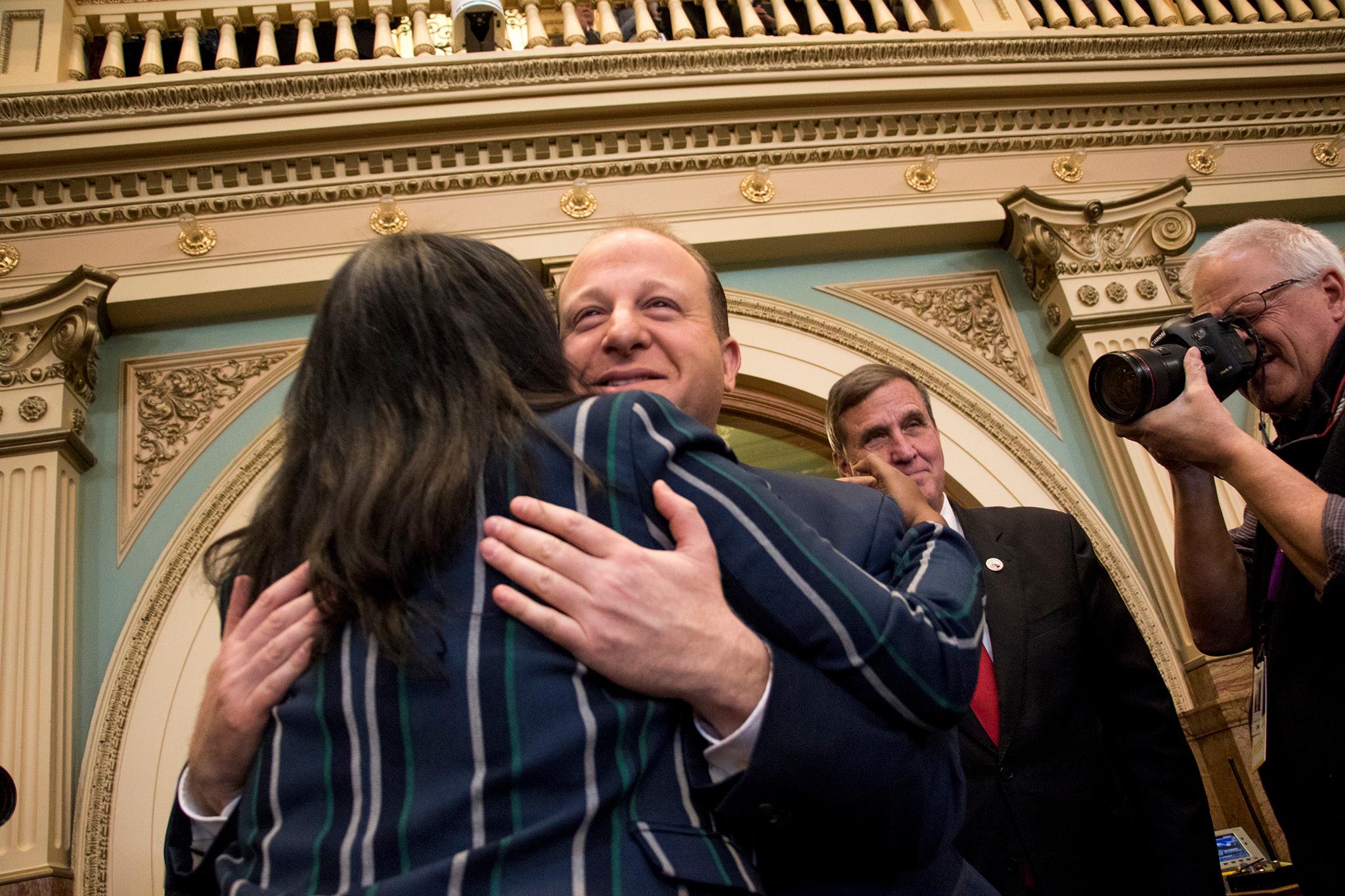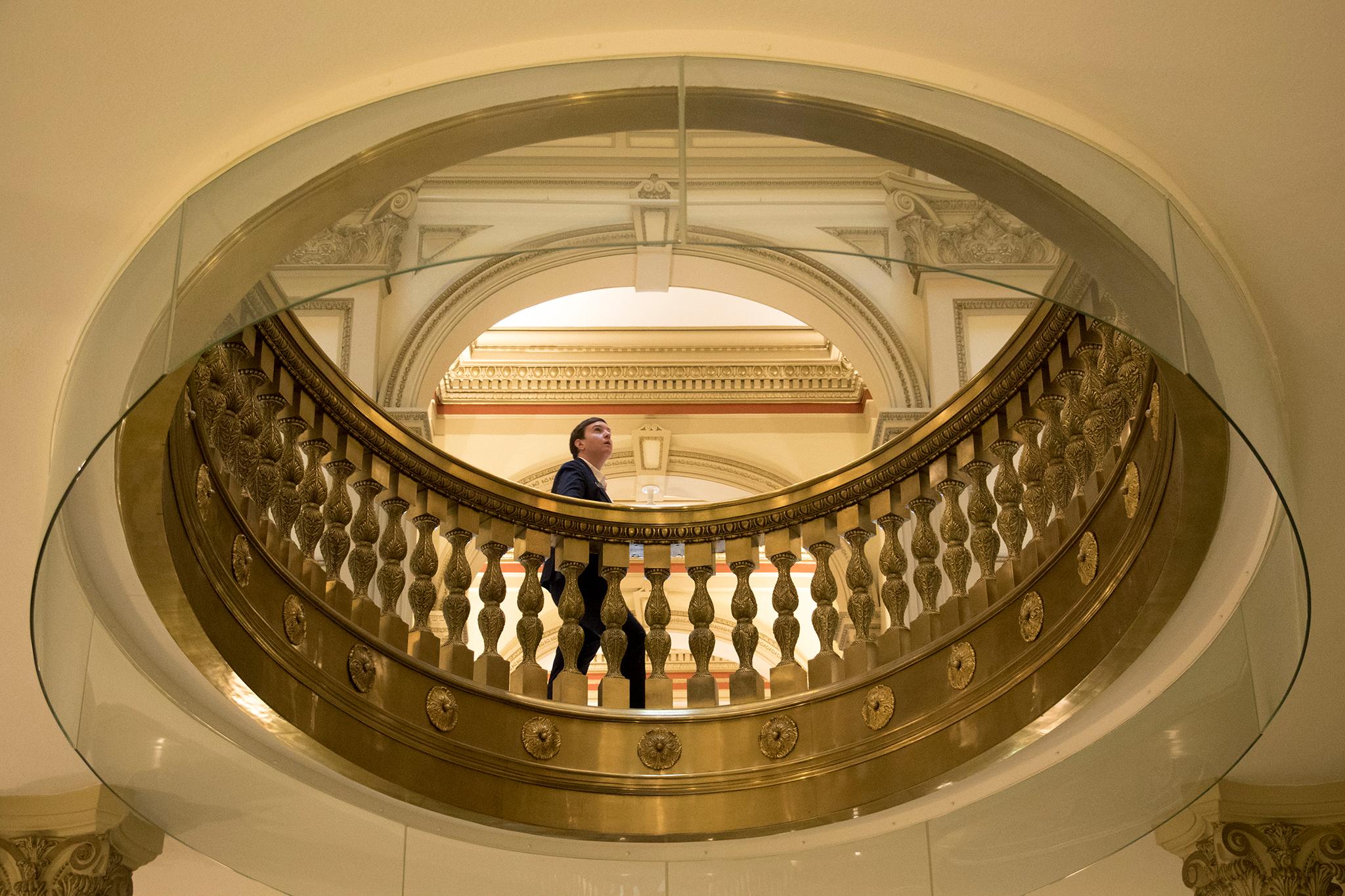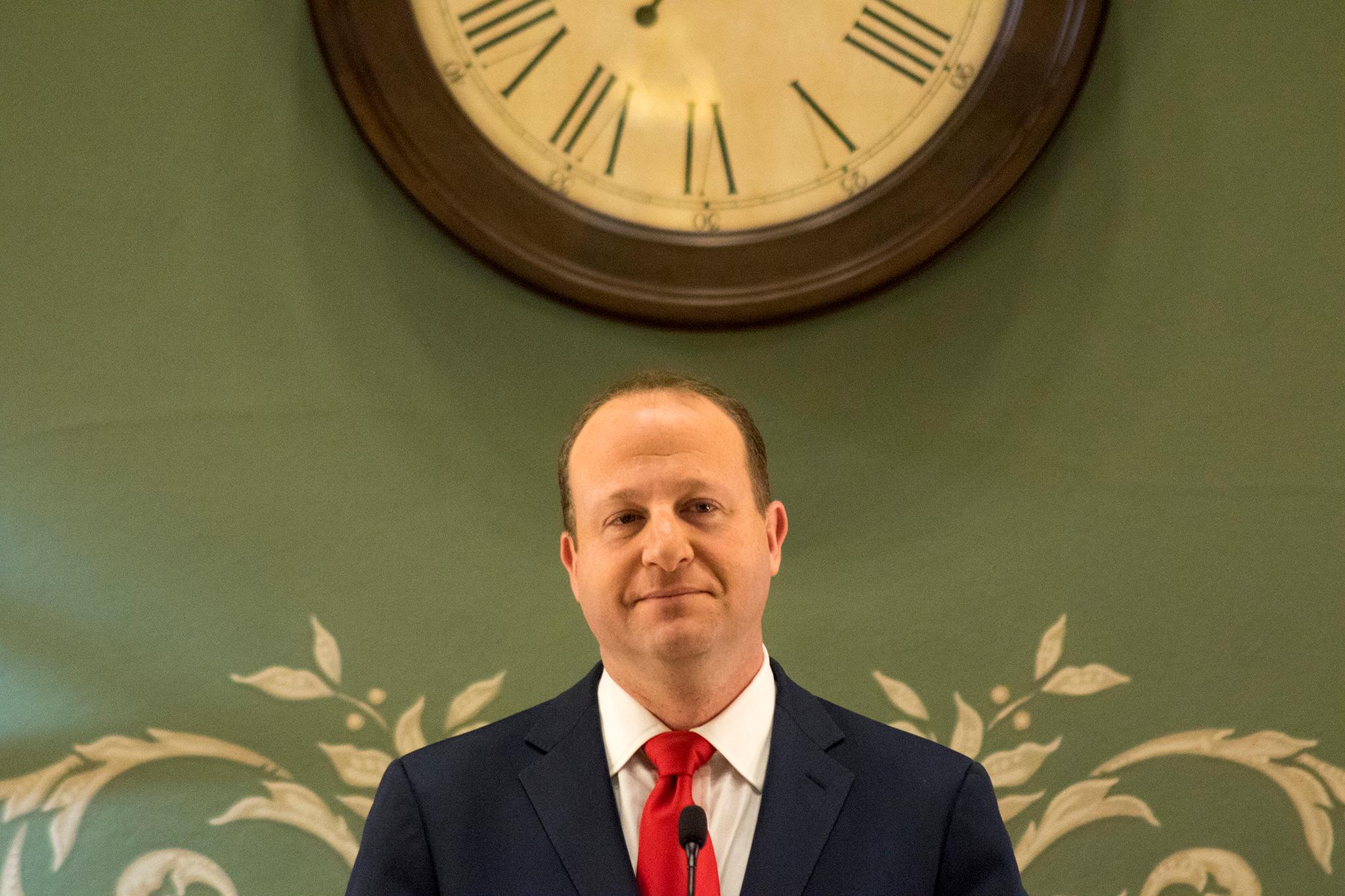Gov. Jared Polis on Thursday delivered his first State of the State address to the General Assembly, providing a clearer picture of what he plans to do in Colorado during his first year as the state's top executive.
The address gives Polis a chance to let legislators from both chambers and the public know his top priorities. It's a bit more insightful and policy-related than his inaugural speech, which serves more as a ceremonial welcome and introduction.
There was no selfie this time, but he still kept a positive message. For starters, the state of Colorado is solid, strong and bold, even daring. In fact, the way he spoke about it, it's pretty much the only state worth a damn.
"Colorado is the best state in the nation to live," Polis said, earning a loud standing ovation from pretty much everyone in the chambers. "Frankly, it isn't even close."
In addition to lines reminding everyone how great it is to live here, Polis rehashed several of the talking points and promises he made during his campaign. So we heard about his support for bringing free kindergarten to Colorado, increasing access to health care and ensuring the state expands its renewable energy use. Only this time, he expanded on the ideas a bit more.
To help break down the roughly one-hour speech, here are five things we learned from Polis' first State of the State address. You can check out the speech in its entirety online on the gubernatorial Facebook page.
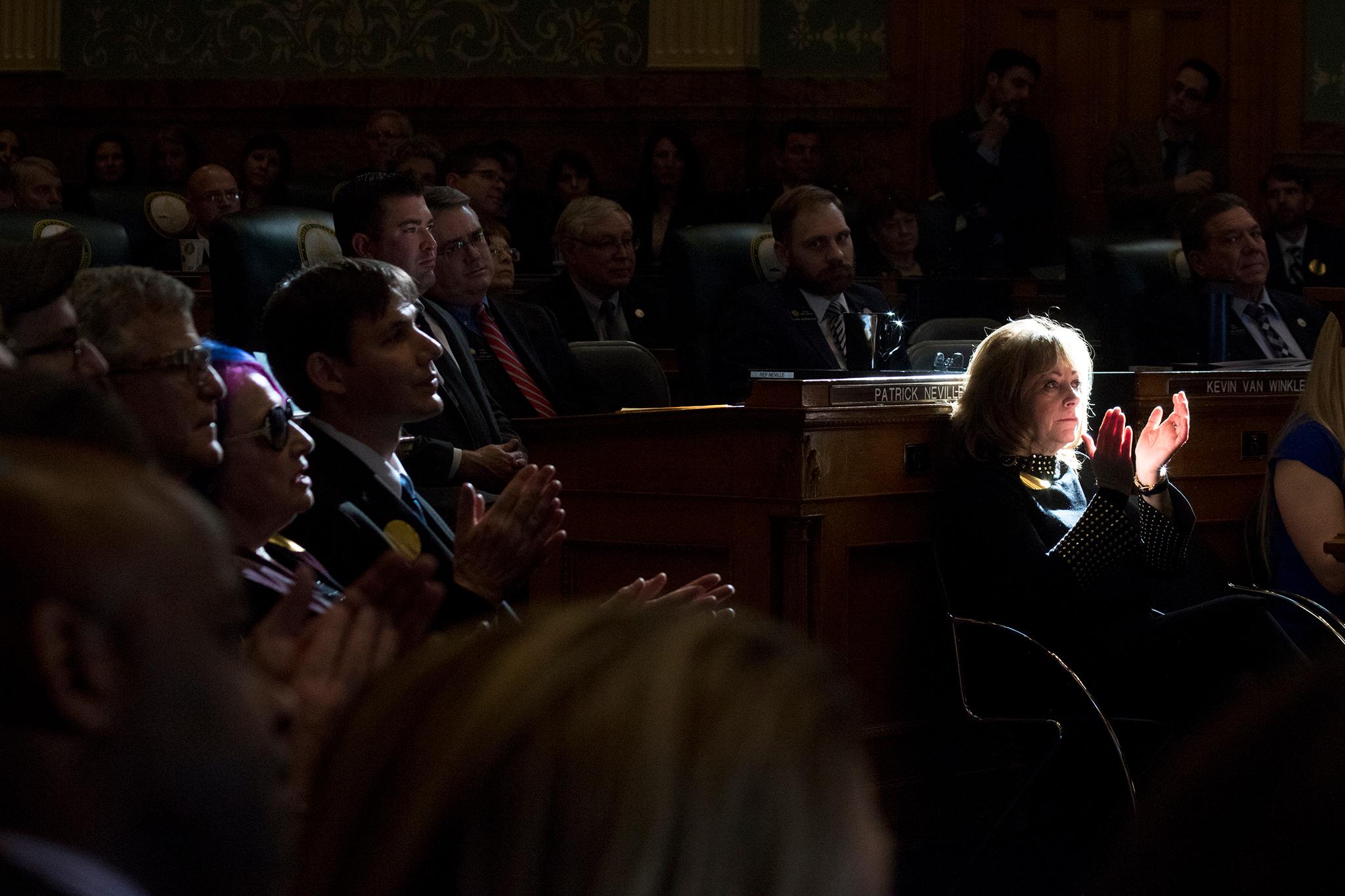
Bringing free kindergarten to Colorado remains high on Polis' priorities list.
By now you've heard this a million times, but now it's got a deadline: He wants to get this done by this fall. It's a big responsibility Polis is now placing in the hands of lawmakers (and to bring the point home, he quoted Uncle Ben from Spider-Man).
Polis, who founded the New America School and the Academy of Urban Learning, has placed education as a priority from basically the beginning of his campaign. He plans on keeping his word by building "a Colorado education system where every child, regardless of their zip code, their race or parent's income" gets access to a good education.
That starts with providing free and full-day kindergarten. He added that this wouldn't be a mandate for school districts. He also wants to expand the number of preschool slots to thousands of more children.
Polis didn't really say how this would all be paid for, though he reminded everyone about another of the state's strengths.
"Our state's strong economic growth means we have the power to do all of this right now without taking resources away from other critical areas of the budget," Polis said.
But he doesn't want to focus only on helping young students -- he wants to figure out how to help high school students and college grads.
Polis said providing better early childhood education will lead to better graduation rates statewide and end up saving taxpayer money. He's keen on improving graduation rates in the state and removing additional "barriers" he said can prevent students from becoming productive adults.
"A high school diploma is more important than ever before in a 21st century economy," Polis said. "While we've made some progress over the past few years, Colorado is really in the middle of the pack in states in regards to our graduation rate from high school."
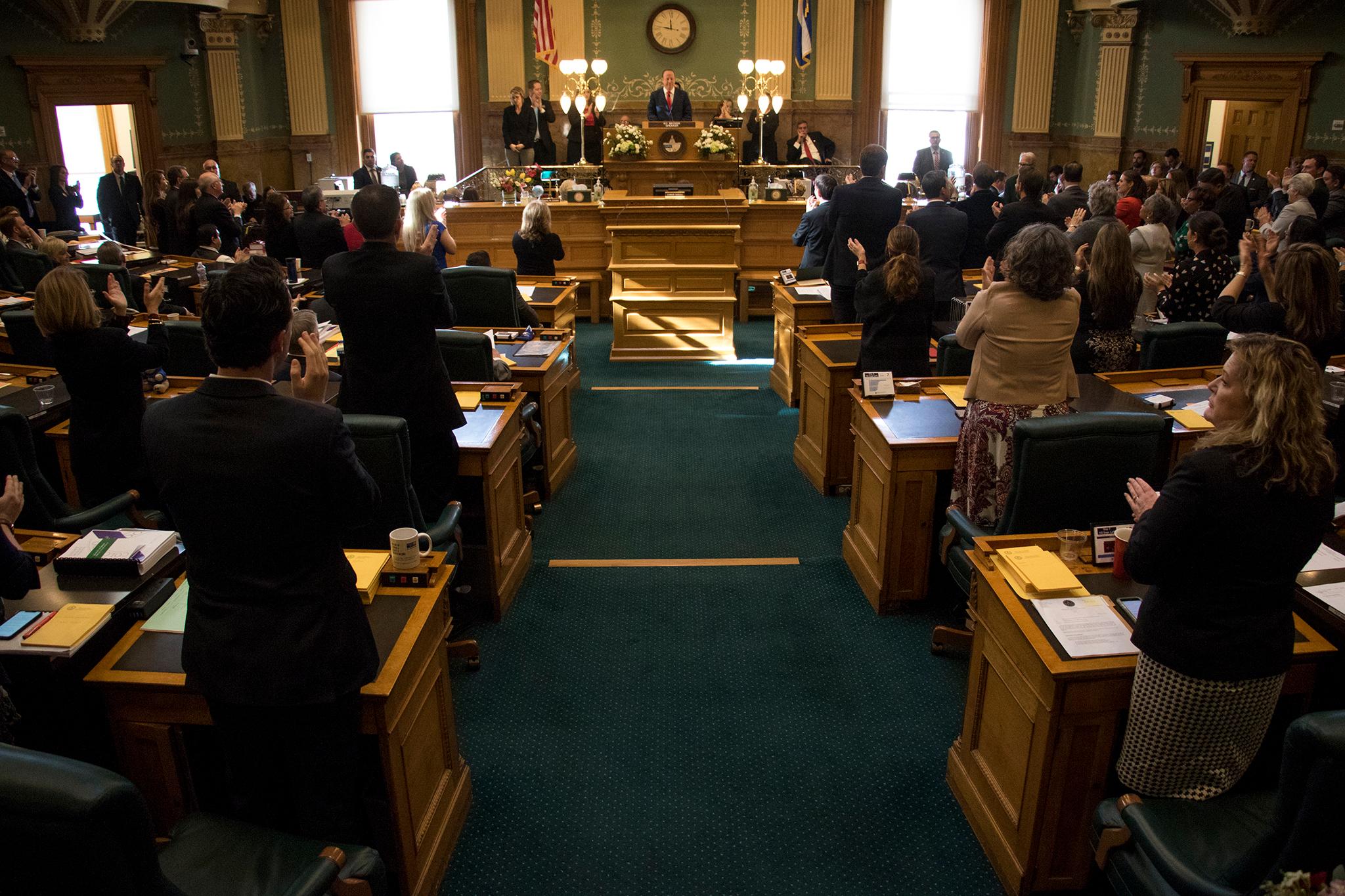
He wants to figure out a way to help what he said are 750,000 residents carrying more than $19 billion in student loan debt. He'll seek to address this by "bringing additional transparency to the student loan process and consumer protection for borrowers" to people trying to afford a college education.
Another education-related idea he suggested: providing student loan relief for teachers serving in high-need areas, including rural communities facing teacher shortages.
"Educators deserve our respect, our gratitude, and of course, to be compensated as the hard-working professionals that they are," Polis said.
Polis will establish the Office of Saving People Money on Health Care.
The office will be led by Lt. Gov. Dianne Primavera, who was known as a health-care crusader during her time in the General Assembly and is a cancer survivor. He mentioned the "outrageous cost" of health care and the work his predecessor did in helping expand Medicaid and reproductive health services.
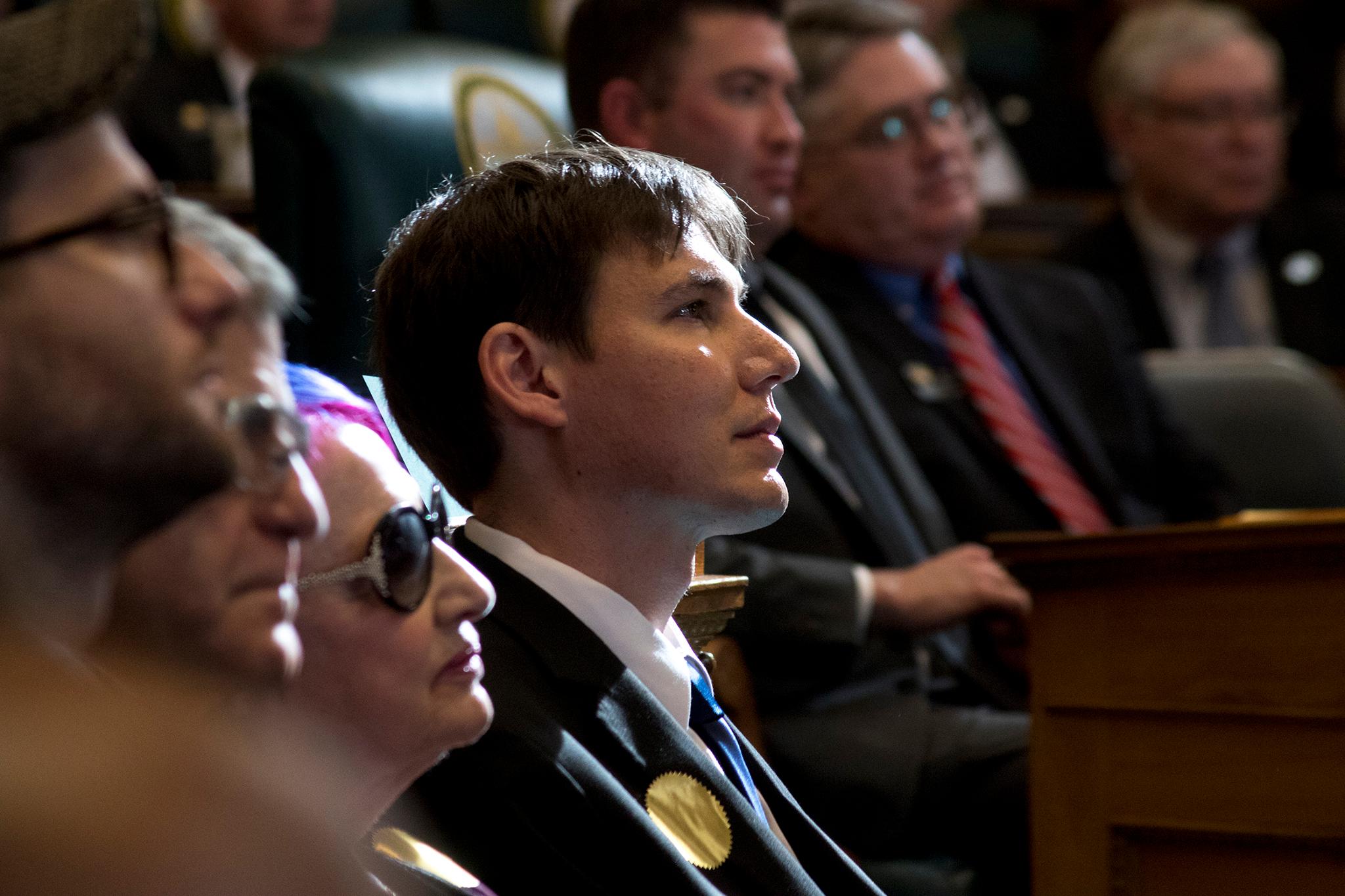
It's a concern Polis said both Democrats and Republicans probably heard from folks in the campaign trail.
"They're all just fed up with getting ripped off on healthcare costs," Polis said. "It's time for us to fix that."
One way to start doing that will be by establishing the Office of Saving People Money on Healthcare. Polis said they purposefully avoided giving the office a bureaucratic or fancy name, though the office will have a list of stuff to do.
"The Office of Saving People Money on Health Care will form the beating heart of our efforts to reduce patient costs for hospital stays and expenses, improve price transparency, lower the costs of prescription drugs, make healthcare more affordable and make market forces work for us, not against us," Polis said.
He suggested pushing for the state to figure out a way to import prescription medication from Canada, which he said are often more affordable
The new governor sees addressing climate change as a way to preserve Colorado's lifestyle and economy.
There won't be any climate change skepticism under Polis.
"When we talk about protecting Colorado's way of life, yes, we need to acknowledge and talk about climate change," Polis said. "Climate change is a scientific reality. It's real."
Farmers and ranchers are experiencing this first-hand, Polis said, since they're the ones facing "historic water shortages." He said it is threatening the more than 40,000 employed by the ski industry in the state, who are facing with less snowpack.
"We are going to confront this challenge head-on," Polis said.
It'll mean focusing on the "growing green energy economy," he said, noting that his renewable energy plan isn't solely about climate change, but also saving money on energy costs and creating well-paying jobs in the green energy industry.
"As governor, my goal is to work with you to lead the statewide transition to a clean, sustainable, growing and prosperous economy because it is an imperative for our climate, our security, our health and economic growth for all Coloradans to address climate change," Polis said.
We still don't know where Polis stands on Denver's safe injection sites.
We know how the Denver City Council feels. We know how the feds feel. But we still don't know how Colorado's new governor feels about supervised injection sites in Denver.
He didn't mention whether or not he supports them, which will require his approval if the General Assembly passes legislation allowing the city's sites to operate. He said it's time for the state "to get a grip" on the opioid epidemic.
"I look forward to working with legislators from both sides of the aisle on solutions that focus on addiction prevention and access to effective treatment," Polis said.
During a press conference after his speech, Polis more or less said he will probably wait until a bill is introduced by lawmakers before making his opinion on safe injection sites known.
"Certainly, our enforcement priority will remain large-scale smuggling operations and criminal syndicates, but we would be happy to help clarify our enforcement priorities with regards to efforts that cities are doing to reduce drug abuse," Polis said during the press conference.
